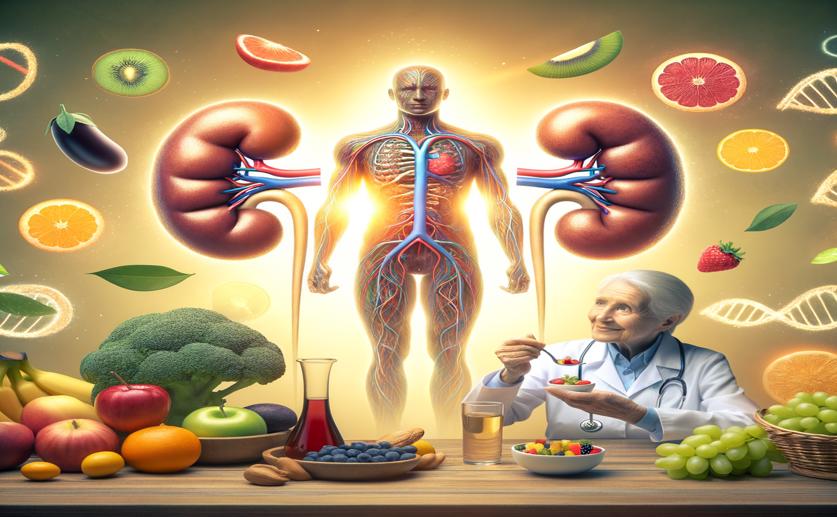
Link between Flavonoid-Rich Diet and Chronic Kidney Disease in Adults
Jenn Hoskins
28th August, 2024

Image Source: Natural Science News, 2024
Key Findings
- The study from Southern University of Science and Technology, Shenzhen, China, found that higher flavonoid intake is linked to a lower risk of chronic kidney disease (CKD)
- People consuming more flavonoids had significantly reduced odds of developing CKD compared to those with the lowest intake
- An optimal flavonoid intake level around 69.58 mg/day was identified, showing the most significant protective effect against CKD
References
Main Study
1) Association between dietary intake of flavonoid and chronic kidney disease in US adults: Evidence from NHANES 2007-2008, 2009-2010, and 2017-2018.
Published 27th August, 2024
https://doi.org/10.1371/journal.pone.0309026
Related Studies
2) KDOQI US commentary on the 2012 KDIGO clinical practice guideline for the evaluation and management of CKD.
3) Plant flavonoids: Classification, distribution, biosynthesis, and antioxidant activity.
4) Flavonoids in Kidney Health and Disease.



 7th July, 2024 | Jim Crocker
7th July, 2024 | Jim Crocker